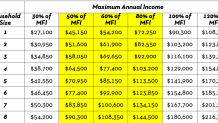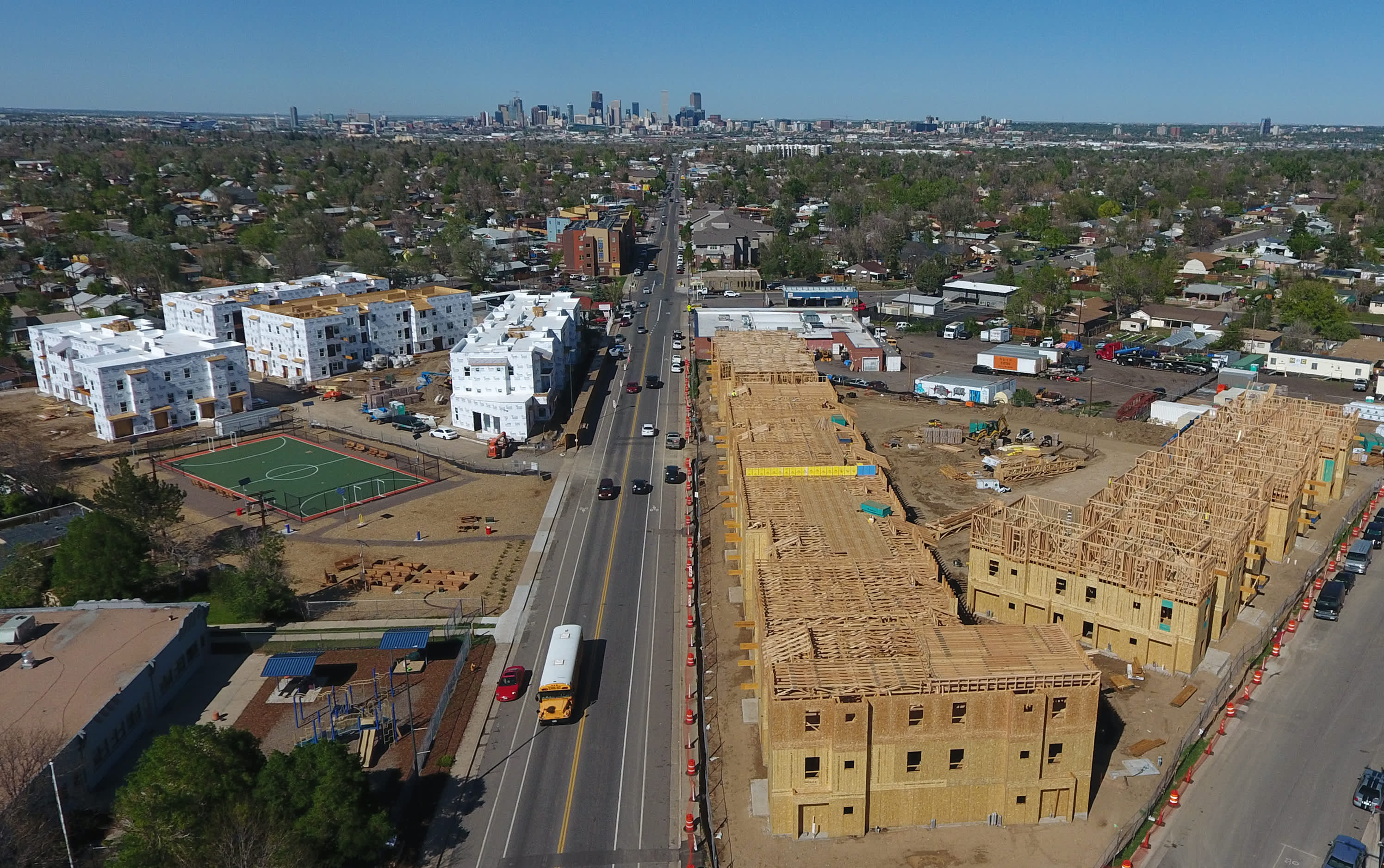
At 22 years old, James Davis felt like he had everything figured out. He had just earned a degree in political science and was about to move to D.C. for a much-coveted internship on Capitol Hill.
The aspiring politico had every intention of staying in the District permanently, but the high cost of living threatened his dream.
"I had job offers, but it was unlivable,” Davis said. He temporarily returned to his native North Carolina, where a relative told him about D.C.'s affordable housing lottery program.
"I could actually rent a nice apartment in a good neighborhood," he said. He returned to D.C., stayed with a family friend while working in the city, and applied.
We're making it easier for you to find stories that matter with our new newsletter — The 4Front. Sign up here and get news that is important for you to your inbox.
The D.C. Inclusionary Zoning Affordable Housing Program, sometimes called IZ, lets residents with moderate income levels rent or buy homes in new developments across the District.
Here's what to know if you're considering the program.
What Is the Inclusionary Zoning Affordable Housing Program?
The IZ program was launched in August 2009 by the Department of Housing and Community Development. The program requires new development projects to set aside 8-10% of residential areas for affordable housing units for rent or sale.
The goals of the program are to create mixed-income neighborhoods, produce affordable housing for a diverse labor force, seek equitable growth of new residents and increase homeownership for moderate-income households, according to a recent financial report.
"DHCD is prepared to use every tool available to meet our goals for producing more affordable housing opportunities all over the city," a letter from former director Polly Donaldson said.
How Much Can You Save Through the Inclusionary Zoning Program?
Participants in the IZ program can see major differences in rental costs. For example, a one-bedroom at The Apollo, a luxury apartment building at Sixth and H streets NE, is listed for $2,359 to $2,959 a month, depending on the floor plan.
Through the IZ program, a one-bedroom in the same building would cost $1,537 a month, according to an email sent to program participants. That's a savings of at least $822 per month.
In Northwest D.C.'s Shaw neighborhood, a one-bedroom in the luxury building 901W is listed for $2,325 per month.
An IZ program participant told News4 she was able to rent a one-bedroom with a den in the same building earlier this year for $1,434. That's a savings of nearly $1,000 per month.
The District’s IZ Dashboard shows a number of homes available now or soon for rent and sale.
How to See If You Qualify For a Home Through the Inclusionary Zoning Program
To qualify for the IZ program, you must live or work in D.C. There is no requirement for how long you have lived in the District, but college or university students are not eligible.
Additionally, eligibility is determined by the following factors:
- Your housing costs for an IZ home may not be more than half (50%) of your income before taxes.
- You must live in the IZ home as your primary residence.
- You or someone who will live with you may not own residential property at the time of lease or purchase.
- Your household must meet the income requirements. Households that make 50%, 60%, or 80% of the Median Family Income (MFI) may be eligible.
DHCD provides this chart to help determine financial eligibility based on Median Family Income (MFI):

Take the Required Orientation Course
In order to join the IZ program, you have to go through an orientation.
The two-hour-long class can be completed in person or virtually, and is offered in English and Spanish. Slots are available on a first-come, first-served basis and can be hard to get.
“I was checking the website every day for like a month to see if a slot would open. As soon as one did, I jumped on it,” Davis said.
Once you complete the orientation, you will receive a certificate that will let you register for the IZ program for two years until renewal. Once you receive your certificate, you must fill out a registration form.
Monitor Your Email for Updates
At this stage, you are officially a part of the IZ program. You will be placed on a listserv that periodically sends rent announcements with information on open units. Each announcement details the building, unit size, cost and additional fees. Floor plans also are sometimes included.
If you are interested in a property, you will have to follow the email's instructions to be added to the apartment lottery. Selection is not guaranteed.
If selected, you will receive a rank number from 1 to 10. If ranked first, you are first on the list to apply for the unit. If you get a lower-ranking number, you have to wait for those ranked ahead of you to apply. If anyone ranked ahead of you is approved before you are, you will have to check the listserv for other open units.
At the end of the day, it was worth it. I’m living in my dream city
James Davis, D.C. Inclusionary Zoning Affordable Housing Program participant
Keep Your Documents Handy
The path to approval for an IZ unit can be tedious. Davis said the vetting process was extensive.
“They make you send in a lot. Not only did I have to send in every single document I had, I had to explain them. I had to print out all of my Cash App transactions and explain why I received money,” Davis said.
Documents you'll have to provide include:
- two proofs of D.C residency
- proof of employer (if you work in D.C. but don't live in the District)
- the last two years of all your federal and/or foreign tax returns
- the last 60 days of pay stubs from all jobs worked
- the last 12 months of monthly profit and loss statements if you're self-employed
- the last six months of your bank statements and explanations for any Venmo, PayPal, Zelle or Cash App transactions
- proof of payment of any child support, alimony, Temporary Assistance for Needy Families (TANF), Social Security, disability, pension or retirement funds
Be Prepared to Wait
Some apartments may not be available right away. Davis was told the apartment for which he was approved wouldn't be available for three months.
"It was honestly ridiculous how long they expected me to wait. I was lucky that my lease wasn't immediately up," he said.
Enjoy Your New Home
Once approved for IZ, you'll be able to sign a lease and enjoy your new home in D.C.
Despite the lengthy process, Davis said he intends to try to use the IZ program again when he is up for renewal.
"At the end of the day, it was worth it. I’m living in my dream city," he said.




